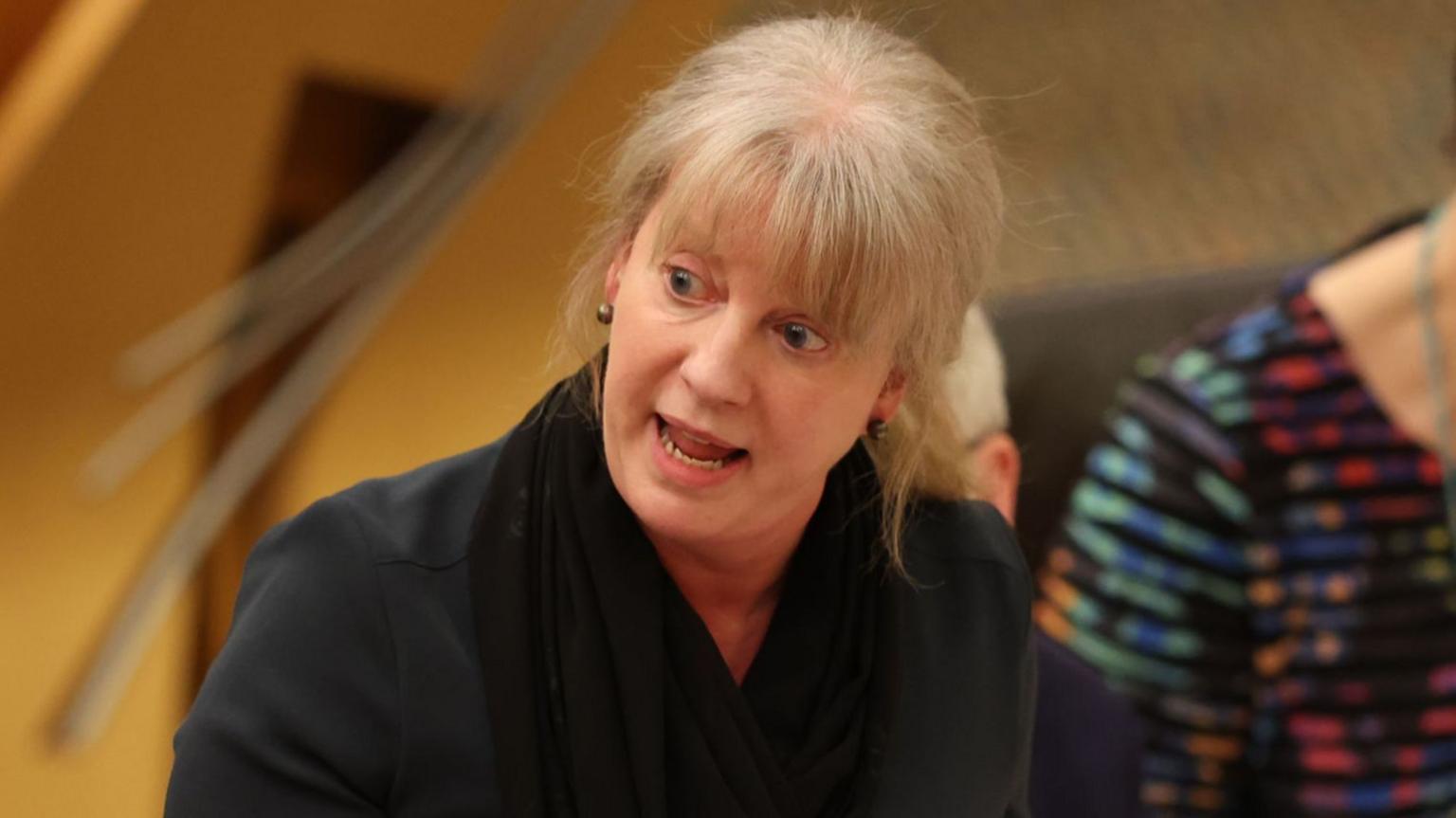FM denies SNP holding up two-child benefit payment
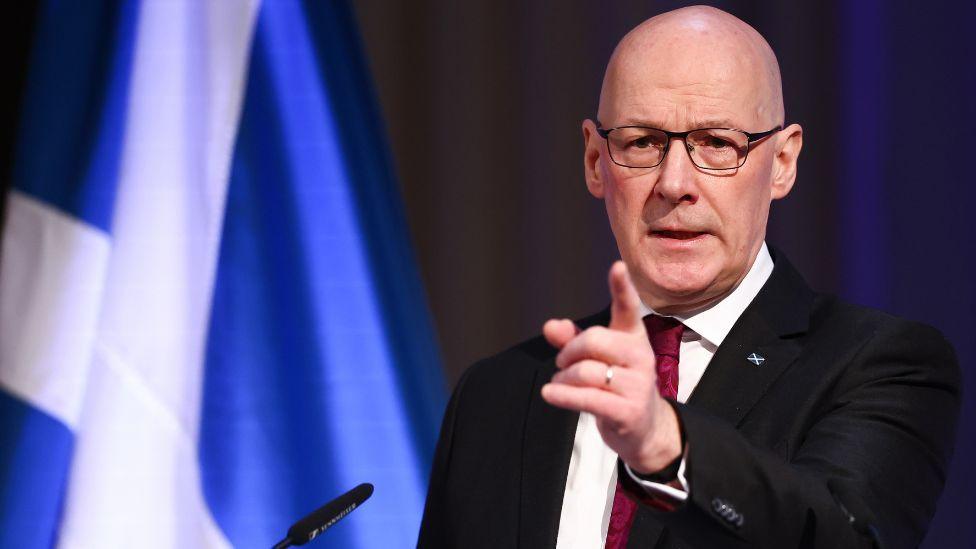
John Swinney says his government asked the UK Department for Work and Pensions for the information it needs to mitigate the cap in December
- Published
First Minister John Swinney has dismissed a suggestion from the UK government that SNP plans to offset the two-child benefit cap are being held up by Holyrood ministers.
The Scottish government wants to issue payments to families by 2026 - but says it needs UK benefits data to make it happen.
Swinney said his ministers asked for information in December, but Scottish Secretary Ian Murray said the UK government was still waiting for a detailed request.
The two-child cap, introduced in 2017, prevents parents from claiming universal credit or child tax credit for more than two children, with a few exemptions.
The UK-wide policy was brought in by the Conservative government and kept in place by Sir Keir Starmer's Labour administration.
Swinney and Sir Keir held private talks over the SNP's plan to mitigate the policy in early December.
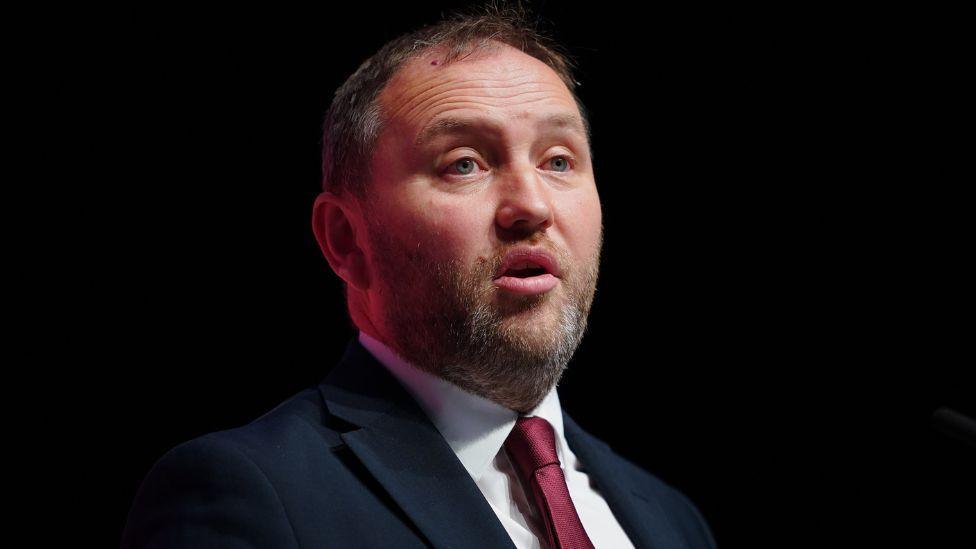
Scottish Secretary Ian Murray says the UK government is cooperating with Holyrood ministers
Scottish government officials have suggested that assistance of the UK Department of Work and Pensions (DWP) was the key to how quickly the plan can be delivered.
But Murray, claimed the Scottish government was not "quite sure what they're asking for" from the department.
He said: "The DWP has given a commitment to the Scottish government that whatever policy comes forward, not only will they supply the data, they are willing to help develop the policy and make sure it interacts properly with the UK welfare system."
He added: "We are willing to give and do anything we possibly can to assist the Scottish government
"They need to develop the policy a bit further so they know what they need and know what they're asking for so it can be supplied."
'Honouring the commitment'
Swinney, who was in Stirling to make a speech about the government's ambitions to eradicate child poverty, said his ministers had already asked for the data last month.
He said: "We look forward to working with the UK government in honouring the commitment the prime minister gave on 6 December that the UK government would work with us to lift the two-child cap."
During the speech, he issued a guarantee that his government would make the first mitigation payments this year "if we're able to safely get the systems up and running" in time.
He added that if Sir Keir does the "right thing" and abolishes the cap across the UK, the funds committed to the Scottish mitigation policy would still be used on efforts to tackle child poverty.
Following Murray's comments, the Scottish government released a letter sent by SNP Social Justice Secretary Shirley Anne-Somerville to Labour Work and Pensions Secretary Liz Kendall setting what data Holyrood ministers "anticipate" they will need to mitigate the cap.
The annex to the letter includes six bullet-pointed "data requirements", such as information on children who are paid under the universal credit exemption rules.
However, the annex notes this is not a "definitive list" because talks "are ongoing between officials".
In its Budget announcement, the Scottish government vowed to provide payments to families affected by the policy by April 2026, or earlier if possible.
So far only £3m in set-up costs have been committed to the pledge.
The Scottish Fiscal Commission has said the mitigation would cost £155m in 2026-27, rising to almost £200m by 2029-30.
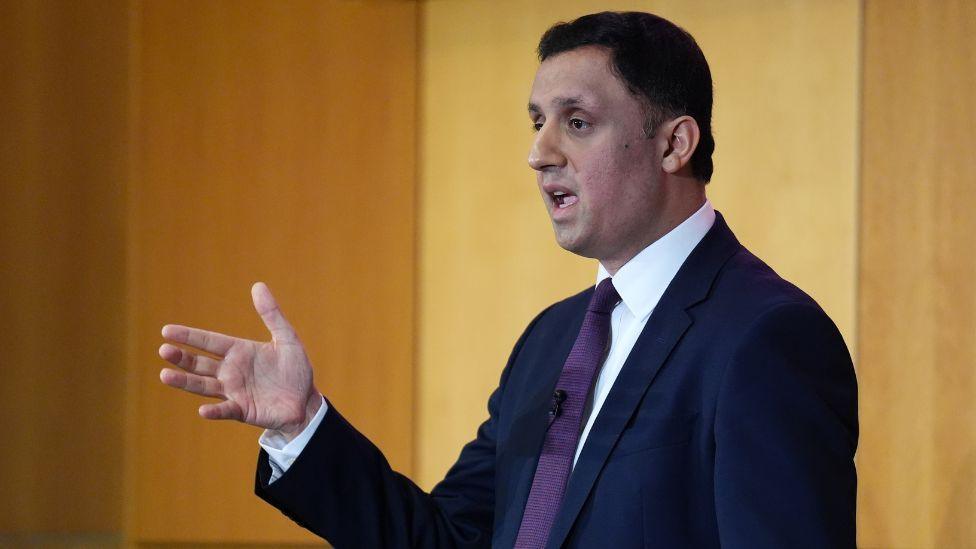
Anas Sarwar is opposed to the two-child benefits cap, which has been kept in place by his Labour colleagues at Westminster
The Budget looks set to pass in a vote next month after Scottish Labour said it would not vote down the tax and spending plans.
However, Anas Sarwar's party - which is opposed to the policy kept in place by UK Labour - said it would back the Budget if the Scottish government accelerated plans to effectively scrap the benefits cap.
It has called for the payments to be made in early 2025, or backdated to then if made later.
Speaking in Glasgow, Sarwar said the SNP should not see welfare as a "silver bullet" to eradicate child poverty.
He called for Swinney to address Scotland's housing emergency, clear NHS backlogs, improve school performance and invest in community policing.
He told BBC Scotland News: "They are continuing to pretend that just welfare is the route out of poverty.
"Actually, give children a home, a job, a well-paid job, skills, expertise, that's how you lift them out of poverty."

Officially, the Scottish and UK governments are delighted at how well they are working together now that Labour has taken office at Westminster.
But on a party level, there is desperate manoeuvring between the two ahead of next year's Holyrood election.
The SNP scored a significant blow with their announcement on the two-child cap, putting Labour on the back foot.
Anas Sarwar's party attempted to put the pressure back on Scottish ministers by backing the plan - and saying it should be introduced even sooner, inside a matter of months.
The Scottish government immediately batted the ball back by insisting they are poised to deliver as quickly as possible, with the key issue being the data held by the Department of Work and Pensions.
Now the UK government say they would love to help in any way possible - they couldn't be more supportive of their rivals' key election pledge - but that Scottish ministers haven't done the prep work yet.
The truth, as always, is somewhere in the middle. There is undoubtedly policy work still to be done at Holyrood, with Scottish ministers still choosing from a number of options for how to go about offsetting the two-child cap.
But Mr Sarwar's demand of the SNP is ultimately going to be contingent on the support provided by his own colleagues at Westminster.
So even as the two governments insist they are working on good terms, we can expect this political jockeying to continue until next year's crucial election.
- Published7 January
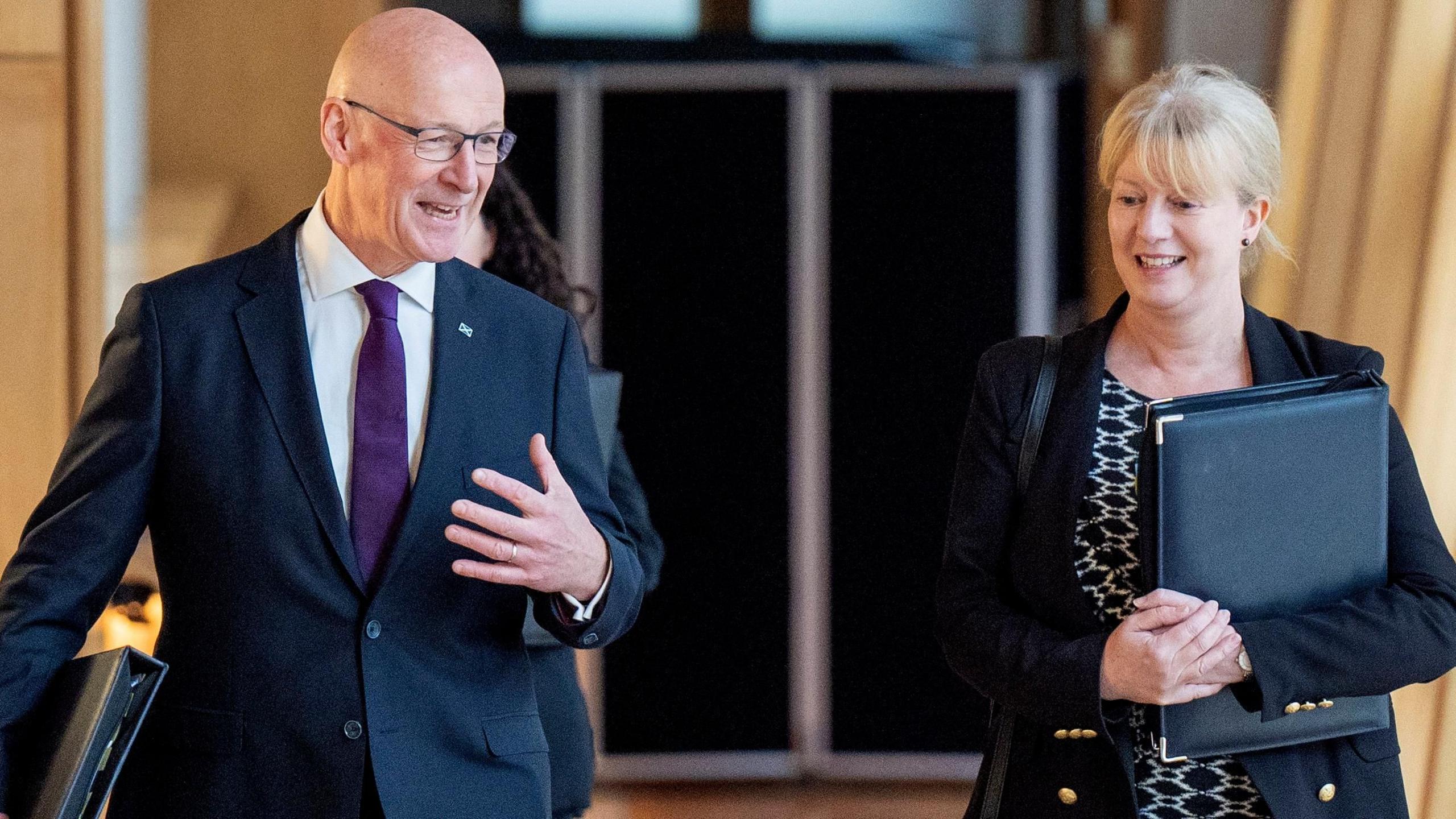
- Published6 December 2024
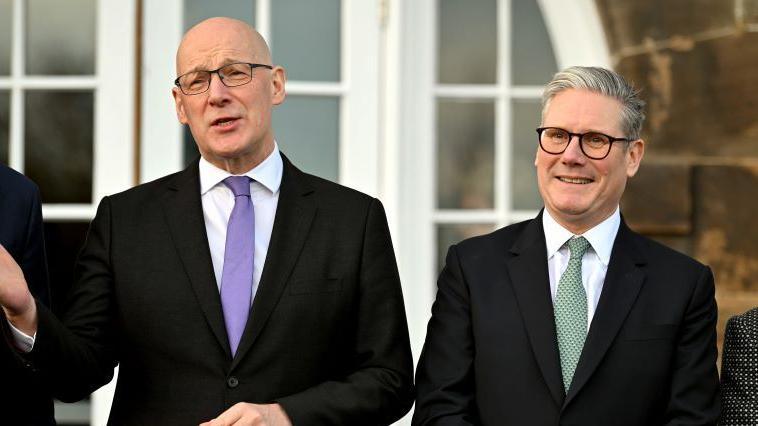
- Published4 December 2024
